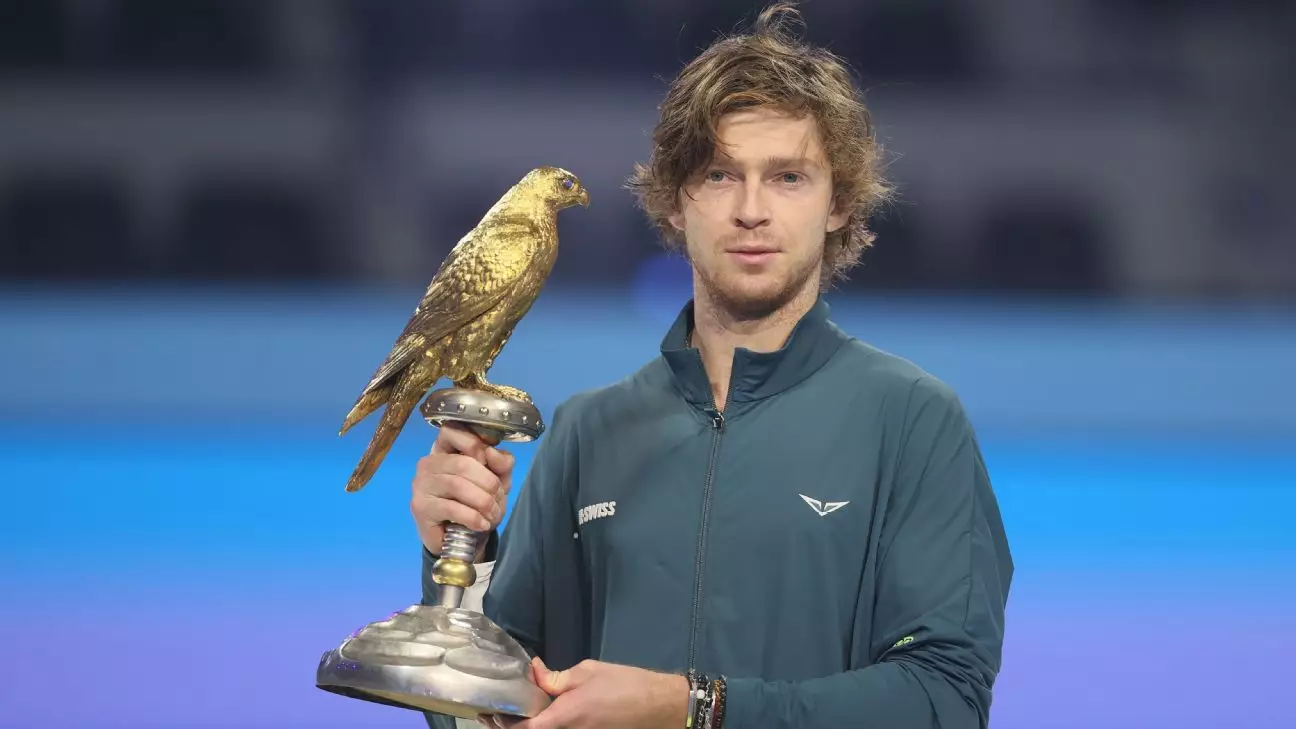Andrey Rublev’s recent victory at the Qatar Open signifies more than just another title in his burgeoning tennis career; it highlights the pivotal role mental strength plays in the sport, particularly during high-pressure situations. Securing a hard-fought win against Jack Draper, Rublev’s performance in the final, marked by a 7-5, 5-7, 6-1 scoreline, reveals a commendable journey shaped by psychological resilience. This match was Rublev’s third consecutive three-set battle over just as many days, showcasing not only his physical conditioning but also a profound mental acuity needed to excel in tennis.
Rublev’s post-match comments shed light on the strategies that allowed him to channel any frustrations into positive performance. He emphasized the importance of maintaining mental clarity and composure in crucial moments. “I was really good mentally and didn’t let frustration get over me,” he stated, underscoring how crucial it is to reset one’s mindset during tumultuous stretches of play. His ability to handle emotional surges and refocus contributed significantly to his performance, revealing a matured athlete who understands that physical prowess alone is insufficient in high-stakes sports.
It is worth noting the significance of this victory being Rublev’s second title in Doha, a location that holds personal importance as it marked the site of his first-ever title win in 2020. The repeated success in this tournament not only cements his relationship with the event but also builds a foundation for future performances globally.
While Rublev’s mental fortitude stood out, it is equally important to acknowledge the challenges presented by his opponents, particularly Draper, who showed formidable skills throughout the tournament and is on the cusp of breaking into the top-tier ranks of tennis. Draper’s performance, culminating in a career-high ATP ranking of No. 12, demonstrates his growth as a player, evidenced in the tough matches he fought in Doha, including the final against Rublev. “We played some tough matches this week, and in the third set, he was just a bit too strong for me,” Draper admitted, reflecting on the intensity of competition.
As both players pushed each other to their limits, they embodied the spirit of competition that the ATP Tour represents, one that thrives on resilience, adaptability, and the will to evolve.
Looking forward, Rublev’s latest success positions him well as he continues his journey through the ATP circuit, while Draper’s ascent in the rankings may herald a new era of competition in men’s tennis. The lessons learned from this tournament will likely serve both players as they navigate future contests, confronting not only their opponents but also the ever-present mental challenges that accompany peak-level performance.
Andrey Rublev’s triumph at the Qatar Open reflects a combination of mental strength, perseverance, and the ability to navigate pressure—qualities that not only define champions but also inspire up-and-coming athletes like Jack Draper. Acknowledging the psychological dimension of tennis is crucial; it often dictates who walks away victorious in the end.

